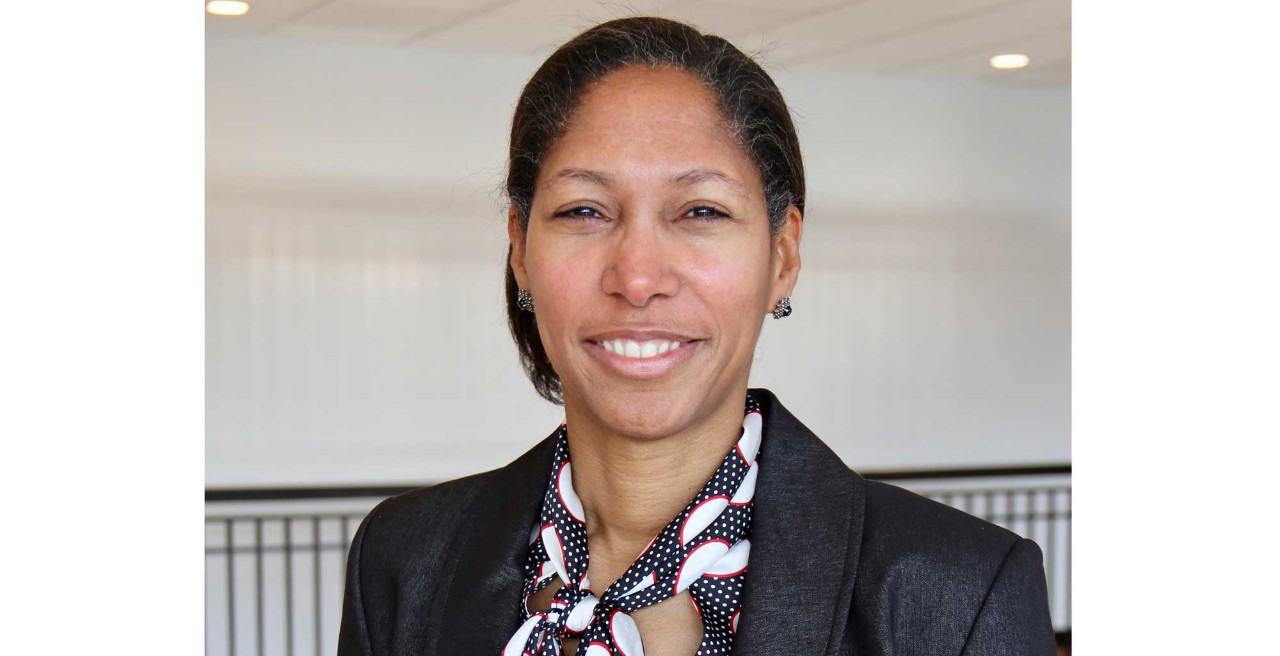
Helping Hearts
College of Nursing professor aims to reduce Black women’s risk for heart disease by reducing stress
By: Katie Coburn
Nearly 50,000 Black women die annually from cardiovascular diseases, according to the American Heart Association. Additionally, nearly half of all Black women ages 20 and older have heart diseases, and 40% are estimated to have high blood pressure—a main contributor to heart disease.
These alarming statistics have compelled Holly Jones, PhD, a Cincinnati native and assistant professor at the University of Cincinnati College of Nursing, to develop a culturally tailored intervention for midlife Black women that decreases their risk for cardiovascular diseases by reducing stress and increasing healthy lifestyle behaviors. Jones calls it Black women’s Stress-reduction WELLness intervention, or B-SWELL for short.
Jones witnessed the detrimental effects chronic stress can have on a person’s health during her first 10 years of working as a nurse practitioner in San Diego, California, in the early 2000s.
“Easily, 50% of the things I saw on a regular basis were stress-related illnesses—your headaches, stomach pains, anxiety, sleeplessness, depression,” she says. “Stress can cause multiple physical symptoms, exacerbate existing illnesses and affect adherence to treatment regimens.”
At the time, she didn’t have adequate resources to help her patients practice healthy lifestyle behaviors and reduce their stress, because this required in-depth conversations, a multi-step action plan and regular progress check-ins.
“You have like 15 minutes with a patient. You don’t have time to sit there and go through all their stressors,” she says. “So, I thought it would be nice if there was a place I could send these patients and say, ‘We need you to do your part as well. I’m going to put you on medication right now, but these are the other things you can be doing to help yourself; here’s a program. Why don’t you check it out?’”
This experience motivated Jones to research stress-related illnesses as she pursued her PhD at the University of California San Francisco. After completing her degree in 2015, she returned to UC—where she had earned her Bachelor of Science in Nursing in 1991—to teach and continue her research focused on identifying chronic life stressors among midlife Black women. Four years of qualitative research and multiple grant proposals later, Jones was awarded a $482,000, three-year grant from the National Heart, Lung and Blood Institute, which kicked off in July 2019, to further her B-SWELL research. Her team includes Tamilyn Bakas, PhD, RN, FAHA, FAAN, from the College of Nursing, Melinda Butch-Kovacic, PhD, from the College of Allied Health Sciences and members of the West End Community Research Advisory Board.
“The multitude of competing chronic stressors experienced by midlife Black women contribute to the striking disparities in cardiovascular disease morbidity and mortality,” Jones explains in her research grant abstract. “These same stressors also decrease the likelihood that Black women will adopt healthy lifestyle behaviors as they diminish the time and energy available for self-care.”
Her preliminary research identified four primary stressors of midlife Black women, including workplace, parenting, finances and social media, plus two underlying stressors, including gendered racism and discrimination and life balance. The purpose of B-SWELL is to help Black women ages 40 to 64 manage these specific stressors using healthy lifestyle behaviors that are culturally adapted to fit their particular needs.
“Everybody knows the benefits of eating healthy, exercising regularly and having a healthy weight and low blood sugars and cholesterol, but there are certain things that might impede your ability to have the time, energy and resources to adopt those healthy lifestyle behaviors,” Jones says. “We hope to provide the women who participate in the B-SWELL program with the support, added knowledge and tools they can use to decrease their stress and hopefully increase their ability to actually take care of themselves.”
Although COVID-19 has delayed in-person randomized control trials, Jones plans to test the effectiveness of B-SWELL through community-based participatory research methods. Her ultimate goal is to have health care facilities adopt the intervention program in Cincinnati and elsewhere, but she recognizes that will take time, and that stress management is one piece of the larger puzzle.
“There are so many factors that impact the development, progression and management of chronic illnesses like cardiovascular diseases,” Jones says. “Stress might seem like one small thing, but it’s important to address these illnesses from multiple different angles.”
Tags
Related Stories
Nursing innovation emerges as critical lever in healthcare transformation
February 18, 2026
Recognizing both the urgency and the opportunity, the University of Cincinnati (UC) College of Nursing is taking deliberate steps to position nurses at the forefront of healthcare transformation. It has created an Innovation Strategic Plan and established a dedicated Industry Advisory Board to forge the academic-industry partnerships essential to accelerating nurse-driven innovation.
UC students aim to expand methadone access to treat opioid use disorder
February 16, 2026
Spectrum News speaks with UC students Yara Chaouali and Selma Younes and UC Nursing Professor Rachel Baker about a proposal to expand methodone access to treat opioid use disorder.
UC’s research surges with $346M in awards
February 12, 2026
The University of Cincinnati reached $346 million in sponsored research awards in fiscal year 2025, up 6.6% increase over the previous year. Additionally, funding for clinical trials at UC climbed, with $88 million in industry-sponsored awards and $33 million in federally sponsored awards.